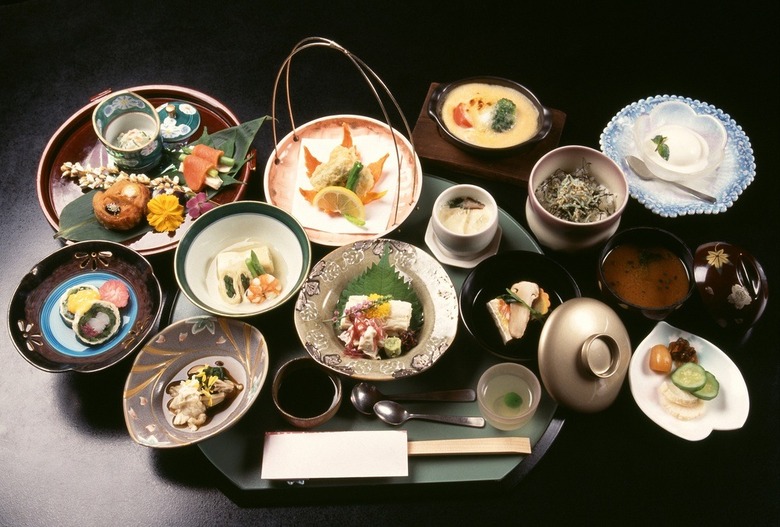Japan's Impressive Life Expectancy Linked To Nation's Healthy Diet
The long life expectancy of the Japanese has been linked, not surprisingly, to the country's healthy diet — one that is high in carbohydrates like rice and noodles, vegetables, fish and meat, and low in saturated fats and processed foods.
A new, 15-year study of nearly 100,000 Japanese men and women between 45 and 75, all without histories of cancer, stroke, heart, or liver disease, found that the healthiest among these citizens were those who abided by a healthy diet recommended by the Japanese government in 2005, outlined above.
Researchers found that those who adhered most closely to the federal guidelines enjoyed a 15 percent lower mortality rate than others, and experienced fewer disabilities as they aged.
"Our findings suggest that balanced consumption of energy, grains, vegetables, fruits, meat, fish, eggs, soy products, dairy products, confectionaries, and alcoholic beverages can contribute to longevity," the researchers concluded, "by decreasing the risk of death, predominantly from cardiovascular disease, in the Japanese population."
In 2015, the small island nation set a record high for its number of centenarian residents — those who live to be 100 or older — for the 45th straight year, reaching an astounding 61,568 people, according to Japan's Ministry of Health, Labor and Welfare.
The population of Japan is approximately 12.6 million, giving Japan the world's largest concentration of centenarians. The U.S., which has a comparable 53,364 centenarians according to 2010 Census data, has a population exceeding 300 million.
An ongoing study of centenarians living in Japan's Okinawa prefecture, which has studied the lives and diets of more than 900 centenarians, has found that these residents not only enjoy good health during their extremely long lives, but are also the least likely group in the world to experience heart disease, stroke, or cancer.
